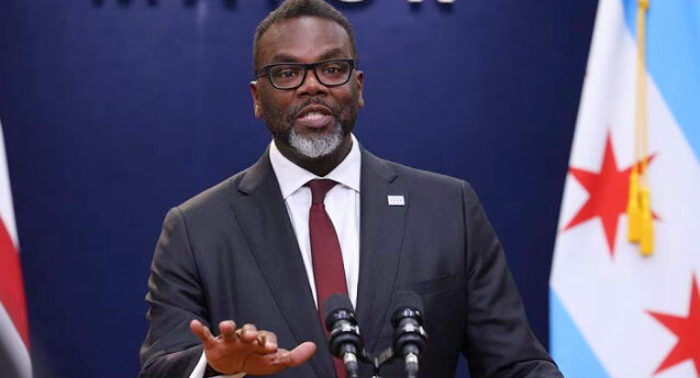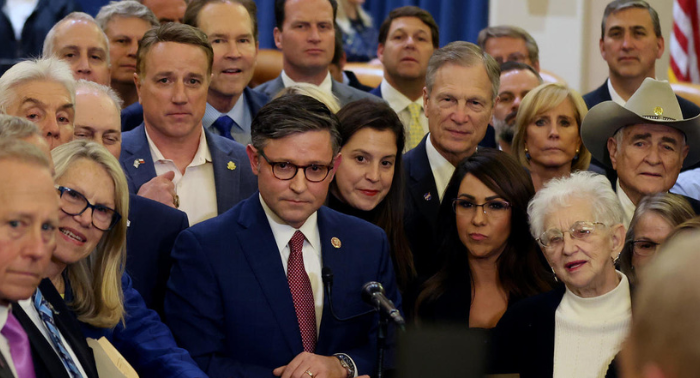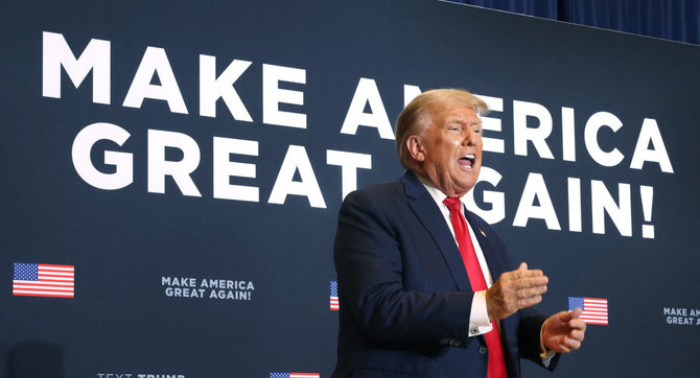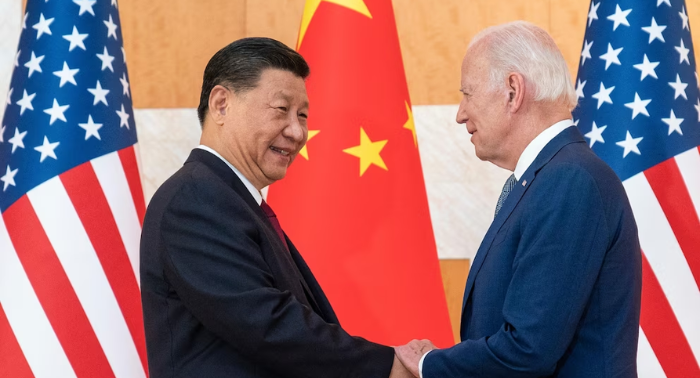Chicago’s leading authority, Mayor Brandon Johnson, is examining the potential of launching municipally managed grocery stores, financed by taxpayers, in localities witnessing business withdrawals due to escalating criminal activities.
Mayor Johnson recently initiated a collaborative effort with the Economic Security Project to evaluate the feasibility of inaugurating municipal grocery outlets. According to information from the Chicago Tribune, this initiative’s primary phase involves conducting a feasibility analysis, although a precise timeframe has not been shared by the city.
Johnson emphasizes that his office is steadfast in cultivating groundbreaking, cohesive government strategies to mitigate existing disparities.
Johnson articulated in an official announcement:
Every individual residing in Chicago has the right to have easy access to budget-friendly, nutritious grocery outlets in their vicinity. It is a known fact that acquiring groceries is a formidable challenge for numerous inhabitants, particularly in South and West Chicago. Envisioning a brighter, more robust, and secure future entails granting our young generation and communities the necessary amenities and opportunities to flourish. We remain resolute in fostering inventive, integrated government solutions to rectify these imbalances.
Ameya Pawar, a senior consultant with the Economic Security Project, likened this initiative to the operational manner of libraries or postal services.
Pawar remarked, “Chicago’s governance is evolving its functional capacity in citizen’s daily lives, examining a public alternative for grocery outlets through a city-run grocery and market initiative. This public alternative can potentially grant communities economic autonomy and options, paralleling the functioning of libraries or postal systems.”
This collaborative effort arises amidst the withdrawal of several major retailers from the Chicago market. Notably, in April, Walmart shuttered four of its eight remaining outlets in Chicago.
Several other enterprises including Walgreens and Aldi have also ceased operations in various Chicago locations.
The concept of city-run grocery outlets has been experimented with in smaller towns but has never been deployed at a magnitude comparable to Chicago.
Despite assurances from Chief of Police Umi Grisby that no taxpayer funds would be utilized, the Mayor’s office clarified that the project would be financially supported through grants sourced from state and federal taxes.
“A significant number of stores are shutting down, forcing us to venture beyond our local areas for grocery shopping,” a resident of South Side Chicago communicated to CBS News. “I perceive Mayor Johnson’s proactive steps to fill the gap created by the exit of large retail chains as a positive development.”
Conversely, renowned Chicago-based restaurateur Sam Sanchez expressed concerns that the stores might operate at a loss, consequently squandering taxpayer funds.
In Sanchez’s words, “Manage the crime effectively, and businesses will return.”




